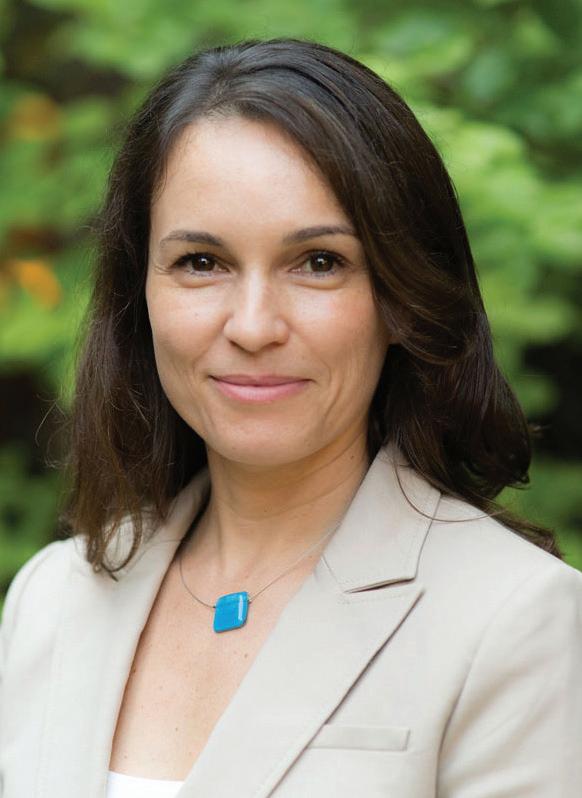RESEARCH FOCUS
Anti-Racism “For the University of Michigan School of Social Work, the pursuit of anti-racism, social justice and community-engaged research and practice right now will help determine whether we are preparing students to enter the profession of social work, or simply providing them with masters’ degrees.” This was the conclusion of Professors. Larry M. Gant, Robert M. Ortega and Daniel Fischer in a conversation this past fall. Faculty research will help make this difference. Why “right now”? On March 13, 2020, our world changed. Offices closed, classes went virtual and we all began to grapple with Zoom. And, 11 weeks later, in Minneapolis, the world
“By creating school-community partnerships around social justice issues, our school connects students, faculty and staff directly to movements for social change” changed again, with an event that may ultimately echo longer and louder than any disruptions from COVID-19: Officer Derek Chauvin of the Minneapolis police department murdered George Floyd, a 46-year-old Black man accused of trying to pass a counterfeit bill. Chauvin held Floyd down, his knee to Floyd’s neck, for somewhere between eight and 10 minutes—“long enough to execute him,” as one prominent activist put it. That summer, anti-racist and anti-police protests rose up across the nation, including several in Washtenaw County. A few days after Floyd’s death, Juneteenth observances took on a national visibility and significance they had not before. The COVID-19 pandemic itself changed. Everyone heard, loudly and clearly, what frontline caregivers had known and lamented all along: “People of color, particularly African Americans, are experiencing more serious illness and death due to COVID-19 than [are] white people,” in the words of Sherita Hill Golden, MD, MHS, of Johns Hopkins Medicine. Worst of all, incidents of racist violence continued around the country. The School’s Faculty Allies for Diversity Committee, led by Associate Dean for Research and Innovation
Rogério M. Pinto, which had been conducting online forums about the pandemic, began to incorporate racial topics, which overlapped with the public health issues already being addressed. In one session, a diverse group of scholars and activists from New Orleans and Baton Rouge found a relationship between COVID-19 to low-income and minority individuals’ exposure to pollutants along Louisiana’s I-10 corridor. The 13 sessions, held by Pinto, provided an opportunity for more than 50 faculty, students and alumni to share their research and personal experiences over the 15 weeks of the series. In tandem with the efforts of the Research Office and the Faculty Allies for Diversity, an initiative for capacity-building, equity and research at the School called ENGAGE, led by Prof. Trina Shanks, held a schoolwide conversation on how students could help communities impacted by the pandemic. This turned into a series of virtual discussions on equity issues — police violence, water justice, the importance of political participation and so on. Attendees learned how they might engage in social movements for change through collective action. Each session featured guests who are Black, Indigenous or BIPOC (people of color) and included discussions of equity in and for BIPOC communities. Shanks’ own research (see page 25) examines the needs of low- to moderate-income families and the systemic barriers limiting economic security that they face. She has supported programming around child savings accounts, youth employment and equitable development. “I center and elevate anti-racist work in local communities,” says Shanks, “such that it furthers social justice. By creating school-community partnerships around social justice issues, our school connects students, faculty and staff directly to movements for social change, so they can help improve the quality of life of those most marginalized.” Like Gant and company, Shanks sees anti-racist research linked to practice and action. Today, Derek Chauvin is serving a 22.5-year sentence for second-degree intentional murder and other charges. The three officers who acted with him will go on trial in March, 2022. “Nothing will bring George Floyd back, but anti-racism and social justice research, put into action, have the power one day to stop any more such incidents,” says Pinto. n
A HEA D | 19






